|
February 2020

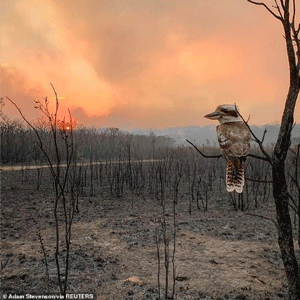 How do you foster empathy in the classroom to encompass the whole environment, not just the animals that inhabit it? How do you strengthen experiences children have in the environment so they become aware of the complex ecosystem needed to sustain so many species? Hosting discussions with students to capture their feelings on a current event, and linking that to a local or international issue, can help foster environmental empathy. How do you foster empathy in the classroom to encompass the whole environment, not just the animals that inhabit it? How do you strengthen experiences children have in the environment so they become aware of the complex ecosystem needed to sustain so many species? Hosting discussions with students to capture their feelings on a current event, and linking that to a local or international issue, can help foster environmental empathy.
Similar to most topics, the more children learn about a place – such as the rivers, ocean, parks, beaches, mountains – the more they care about it. Using affective empathy is one method to improve a child’s capacity to share another’s feelings. For example, how would it feel to have a very messy room? How would it feel if it was someone else making the mess in your room? Who would be responsible for cleaning up the mess? By linking personal feelings to another context, sparks of empathy may occur for the polluted ocean or park littered with trash.
The recent Australian bushfires, which have reportedly burnt 27 million acres of land, may be an event that will invoke students to practice affective empathy. What long-term damage will this event have on the ecosystem (habitat destruction, food and water shortages, endangered species)? How can we prevent big or small environmental disasters, from bushfires to pollution caused by garbage or toxins? Discussing the importance of every environmental space – not only for humans but for wildlife and plants – and how we can all prevent certain levels of damages from occurring, creates a foundation of empathy children can foster as they continue to think critically about the environmental events taking place around them.
Did you know that B.C. does not currently require local authorities to include domestic animals in emergency planning, response or emergency support services? The BC SPCA has created a petition urging the government to include animals in the plan to modernize the Emergency Management Legislation. The B.C. government has invited the BC SPCA to share our recommendations; we want to tell them that YOU think including animals in emergency planning and response shouldn’t be optional.


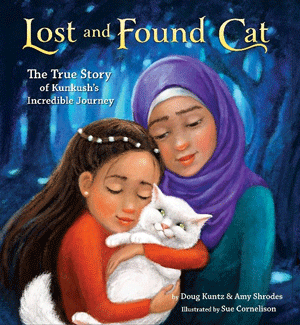 Lost and Found Cat: The True Story of Kunkush’s Incredible Journey Lost and Found Cat: The True Story of Kunkush’s Incredible Journey
By Doug Kuntz and Amy Shrodes
Reading level: Grade 3 and up
Forced to leave their home in Iraq, a family has to make a perilous journey to safety in Norway, bringing only basic possessions and their cat, Kunkush.
During the long journey, Kunkush escapes his carrier and spends days wondering the streets of Greece before he is picked up by a caring stranger. The stranger brings him to a vet clinic where he is brought back to health, and the search for his family begins. The vet realizes Kunkush must have had a loving family based off his temperament, so she uses social media to find them. After weeks of searching, the family sees the vet’s post with the picture of their cat, and organizes their reunion.
Young animal lovers will read this powerful story of a family who undertakes great obstacles to ensure their cat comes with them as they have to leave their home. It also shows the power a compassionate stranger can have, and how each person can make a difference.
Discussion topics that may arise from this story are the obstacles that many people face when a natural or man-made disaster strikes and they are forced to leave their home. What considerations should we give to our pets during this transition to make them feel safe and protected? Additional topics may include how social media platforms can be used in a positive way to bring attention to situations and issues to benefit animals, and in this case reunite them with families.
Lost and Found Cat ends with a collection of real life images from this incredible true story of courage, compassion and perseverance. Included is an explanation that part of the proceeds from the book go to help millions of refugees who are having to make the difficult decision to leave their homes each year.
Read more reviews of our recommended books.


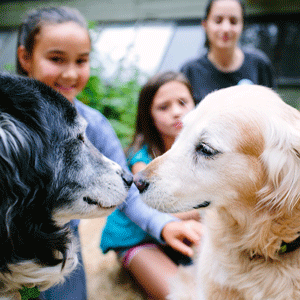 Be a sweetheart for animals! Be a sweetheart for animals!
Kindness and compassion are important year-round, but what better time to showcase kind thoughts and actions than Valentine’s Day! Plan a February 14th event with your BC SPCA School Club and show shelter animals some love.
Raising funds for animals in need is an excellent idea, but you can also go one step further, encouraging your students to put their problem-solving skills to the test to discover how best they can help animals. Students can contact their local BC SPCA branch to identify what items are most-needed and hold a donation drive.
Do your students have a creative flair? They could make some no-sew cat beds from old fleece blankets that will keep shelter animals cozy and warm this winter. Or, get a jump on Treat Week and bake the world a better place by crafting some confectionary to raise funds for animals. You could even contact your local shelter and see if they can provide you with an approved recipe to create some of your own delectable delights for shelter animals!
The possibilities for showing love, compassion and empathy to animals this Valentine’s Day are endless. If your students need a little inspiration, check out our brand new School Club Manual for more ideas.


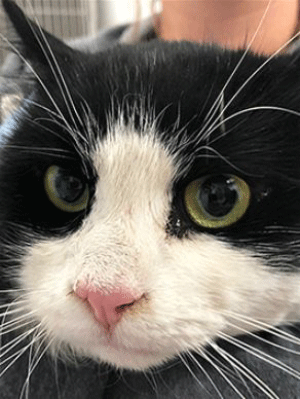 Meet Fergus (formerly known as Kokanee). Fergus shares a home with a very kind and patient family, who gave him time and room to get over his anxiety. Meet Fergus (formerly known as Kokanee). Fergus shares a home with a very kind and patient family, who gave him time and room to get over his anxiety.
Read about the steps that were taken over several months to help Fergus gain confidence in his surroundings and learn to trust people. It is not easy to adopt a pet who is not interested in being part of the family right away. But Fergus’ family took all the right steps to gently encourage him to come out of the corners he found for hiding. He now seeks out his humans and asks for pets. His family couldn’t be happier. He was worth the wait.
Learn more about this news item and other BC SPCA news that you may want to include in class discussions.
|

The BC
SPCA has classroom resources for grades K-7. The lessons integrate
animal issues and information into existing provincial learning
outcomes.
Click on a lesson plan below to learn more.
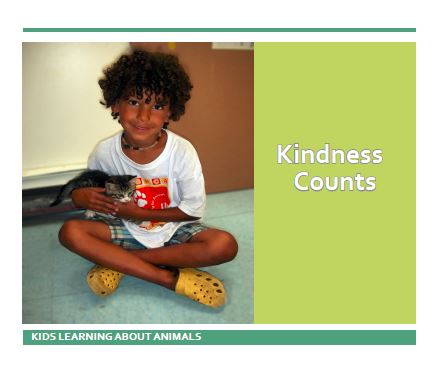
Kindness counts
(Primary)
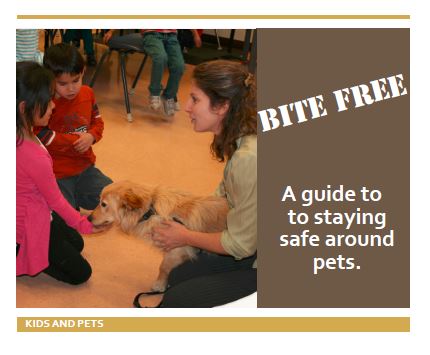
Bite free
(Primary/intermediate)
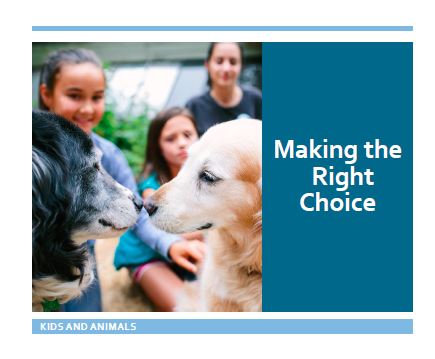
Making the right choice
(Intermediate)

You can make a difference
(Intermediate)
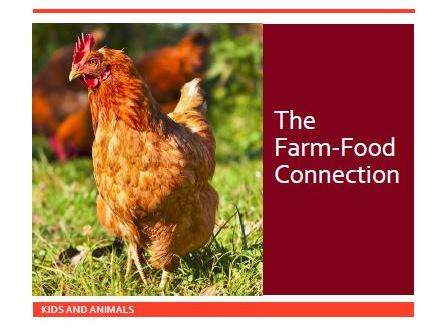
The farm-food connection
(Intermediate)
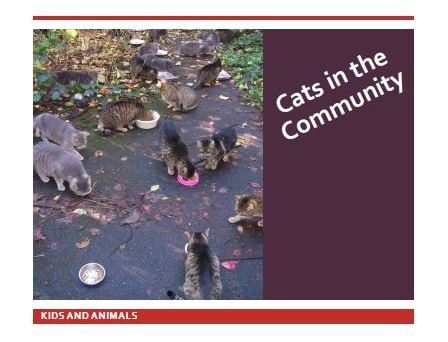
Cats in the community
(Intermediate)
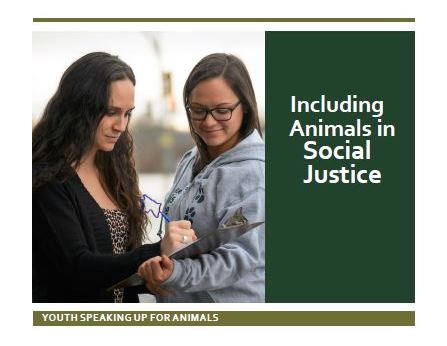
Including animals in social justice
(Intermediate/Secondary)

We would love to know what you think of this newsletter. Do you use it regularly? Is there a topic you would like us to cover? Do you share it with others?
Please email us your
questions and comments.
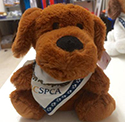
Informational DVDs and BC SPCA merchandise available at shop.spca.bc.ca
|


















